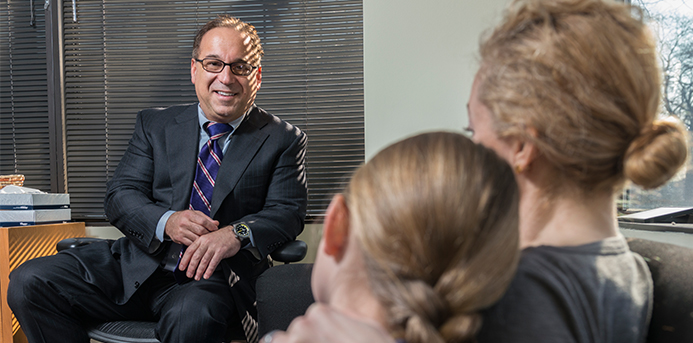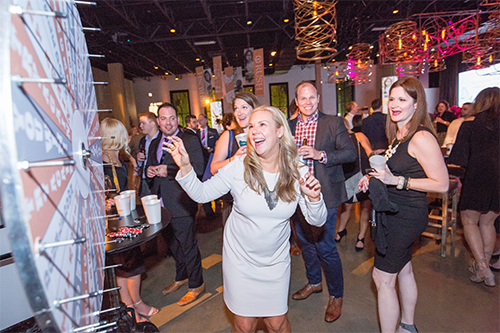Joycee Jenkins noticed something wasn’t right with her son, Jacob, when he was about 6 months old. “He wasn’t laughing, wasn’t alert, was always such a serious baby, and he wasn’t looking at me the way my other child looks at me,” Jenkins recalls.
Although numerous doctors told her not to worry and attributed the behavior to his lack of socialization, Jenkins wanted more answers. After researching autism resources in the Chicago area, she brought her son to the Autism Assessment, Research, Treatment & Services, or AARTS, Center at Rush, where he was diagnosed with nonverbal autism at 2 years old.
“I was devastated at first, because people bring up autism as if it’s a curse word,” Jenkins says. “Some parents don’t know how to teach their kids or don’t have hope for their kids. I didn’t want my son to be like that.
“I knew if I was in denial, he would keep being held back. I had to accept it.”
Learning to speak his language
Parenting became a little easier for Jenkins once she realized that Jacob was a visual learner. “Growing up, my mother always said that the child is supposed to listen to the parent, but sometimes with Jacob, I have to listen to him,” Jenkins says.
“I can’t just say, ‘Jacob, go brush your teeth.’ Those are the lessons Rush has taught me, that I have to brush my teeth first so he can watch me and then brush his own teeth.”
Jacob is one of many AARTS Center patients who will benefit from Rush Associates Board’s 11th Annual Casino Night, which is supporting the center’s work with children, adolescents, adults, and families affected by autism and other neurodevelopmental differences.
As a national hub for high-quality clinical care, leading-edge research and comprehensive outreach, the center is dedicated to addressing the unmet needs of this population to ensure that everyone — regardless of age, location, and financial resources — is given the tools they need to thrive.
Putting precious resources within reach of families
“The earlier you can diagnose autism, the better,” says Louis Kraus, MD, director of the AARTS Center and honorary chair of this year’s Casino Night. “The earlier the interventions, the more intensive the treatment can be and the better the outcomes are going to be for the child — but for our program to be able to function, we truly have to rely on philanthropic support and our benefactors.”
With one in 68 children in the U.S. affected by autism and most insurance providers not covering the necessary interventions and assessments, countless families struggle financially. On average, providing care for a child’s autism is costing them $60,000 a year.
“This is where philanthropy really steps in to help our families receive vital services and basic needs,” Kraus says.
Jacob is a prime example of how philanthropic support helps Rush’s patients thrive, defying the odds of a diagnosis daily.
“I can’t believe he’s doing half the things he does; he’s so independent,” Jenkins says. “Our life was hard, but thanks to the AARTS Center, now it’s easier.
“Our family is on a routine, we are open with therapists and teachers, and it’s just easier to express it all in a more beneficial way.”
You can improve the lives of patients like Jacob
Purchase tickets to join us on Friday, May 4, at the 11th Annual Rush Associates Board Casino Night, or donate tickets to patient families of the AARTS Center. Visit the event page to learn how your support and participation in this evening of great food, dancing, and charitable gaming will make all the difference.
Together we will benefit the work of the AARTS Center and honorary chair Louis Kraus, MD, while also addressing critical research and social service needs across Rush University Medical Center and in the community.



